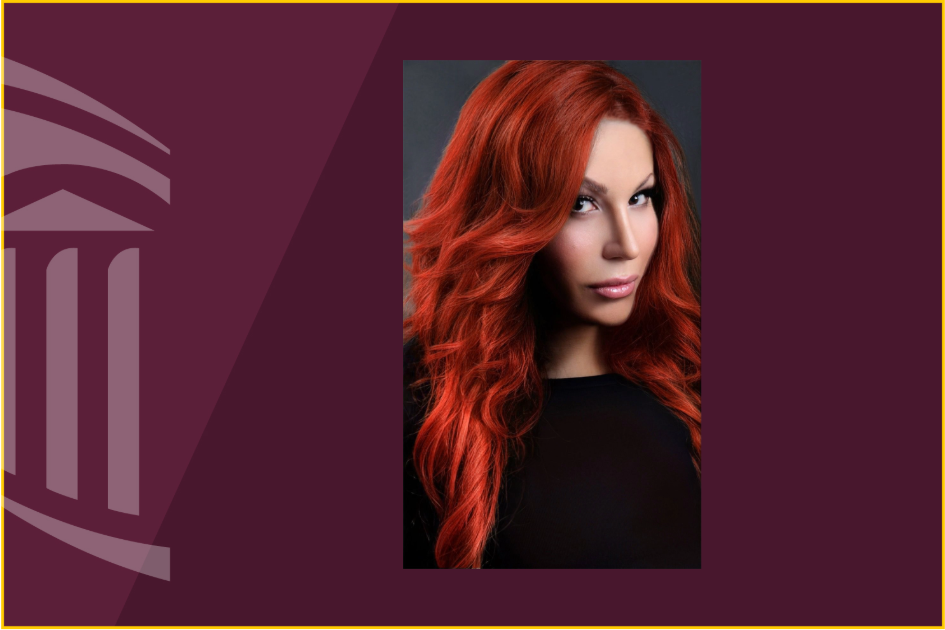Pictured: Anya Marino ’12, director, Maryland Carey Law LGBTQI+ Equality Clinic
The University of Maryland Francis King Carey School of Law is launching a new LGBTQI+ Equality Clinic in the fall 2024 semester. The year-long, eight-credit course will provide law students opportunities to advocate on behalf of the LGBTQI+ community’s most vulnerable members, including trans, nonbinary, gender nonconforming, and intersex people; LGBTQI+ people of color; LGBTQI+ youth; and LGBTQI+ people living in regressive communities.
The clinic is a notable complement to the offerings in Maryland Carey Law’s top-ranked Clinical Law Program.
“The establishment and enforcement of legal protections for members of the LGBTQI+ community is a fundamental civil rights issue,” said Professor Leigh Goodmark, director of the Clinical Law Program. “Adding the LGBTQI+ Equality Clinic underscores our commitment to ensuring access to justice as broadly as we can and gives students the opportunity to engage with some of the cutting-edge civil rights issues being litigated today.”
Leading the clinic is Anya Marino ’12, director of LGBTQI Equality at the National Women’s Law Center in Washington, D.C. Under Marino’s supervision, clinic students will work in collaboration with the National Women’s Law Center’s gender justice advocacy attorneys focusing primarily on LGBTQI+ equality in education, employment, and health care. The experience will include legal research; preparing, drafting, and editing whitepapers, toolkits, comments, testimony, and amicus briefs; reviewing pleadings in active court cases; and learning about evolving medical studies and standards of care.
The weekly classroom component of the course will integrate legal doctrine and lawyering skills. Students will delve into matters involving employment discrimination, reproductive justice and privacy, same sex intimacy and the policing of queer bodies, marriage equality, sex-separated programs and spaces, access to medically necessary health care, the carceral state, military inclusion, identity documentation, and First Amendment freedoms. Students will also take a critical eye to previous LGBTQI+ movement strategy decisions.
Before joining the National Women’s Law Center, Marino instructed Harvard Law School’s LGBTQ+ Advocacy Clinic. She also served as deputy legal director for the ACLU of Florida, where she oversaw the legal department’s voting rights litigation and litigated LGBTQ+ and First Amendment cases. Marino was the first openly transgender woman of color to serve in any senior legal position throughout the ACLU’s federation of national and affiliate offices and was the first transgender woman of color to teach at Harvard Law School.
“We are thrilled that Anya is returning to Maryland Carey Law to head this vitally important clinic,” said Dean Renée Hutchins Laurent. “Her professional and lived experience make her perfectly positioned to guide students as they work to protect and advance the rights of some of the most vulnerable members of the LGBTQI+ community."
A 2012 graduate of Maryland Carey Law, Marino received the law school's 2022 Rising Star Award and the 2023 Dean José Bahamonde-Gonzalez IMPACTO Award. Also in 2022, the National Hispanic Medical Association honored her as a trailblazer advancing LGBTQI+ health equality, and Liaison International recognized her as one of seven women who shattered the glass ceiling in higher education.
“LGBTQI+ people need only overhear the news media, scroll through clickbait content and discussions pervading social media, learn of another case involving the community’s persecution, or endure another instance of differential treatment in school, workplaces, places of public accommodation, health care practices, or housing to feel like their lives and identities are a constant topic du jour,” said Marino. “The need for additional advocates and strategies remains critical when anti-LGBTQI+ extremists bombard community members with policies, practices, and violence geared to erase LGBTQI+ people from all aspects of public life. I am excited to return home at Maryland Carey Law to build experiential learning opportunities for students committed to advancing and defending the rights of LGBTQI+ people, and to help cultivate a new generation of attorneys needed for this essential work.”

